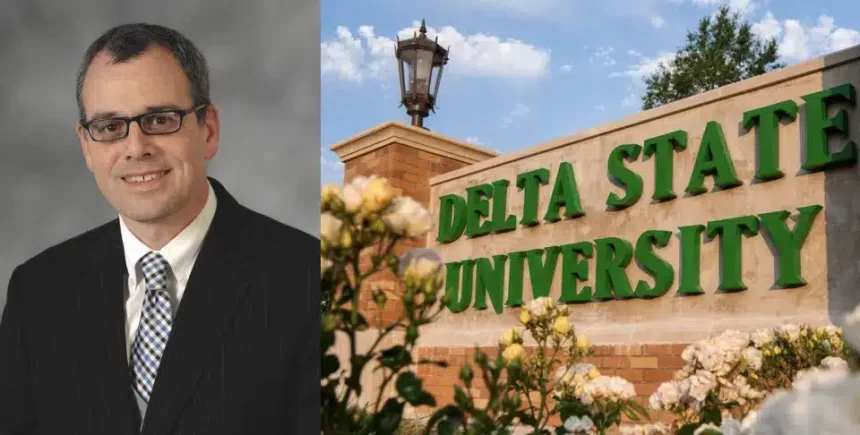Delta State University President Dr. Dan Ennis has unveiled massive budget cuts along with the end of multiple departments to keep the Cleveland college afloat amid financial woes.
In a memo penned for public consumption, the strategic changes that could be implemented include cutting more than $6.1 million from the FY25 budget, with an additional $1.5 million in savings to be realized by the end of FY27.

“In order to fortify Delta State University as a stronger institution poised for future success, I have made the difficult decision to implement budget cuts, program reductions, and service changes aimed at addressing the university’s challenges,” Ennis said. “These measures are necessary for the greater good of DSU’s sustainability and long-term viability.”
Delta State in recent years has been plagued with an imbalance between spending and revenue largely due to a dwindling enrollment, despite freshman retention reaching a 20-year high and an overall increase in students registering for classes in 2023. This has promted school officials to work toward realigning resources to better reflect current demands and ensure a sustainable path forward.
As part of this strategic initiative, the public university plans discontinue several programs that have consistently experienced low enrollment, with half enrolling fewer than 10 students. These changes will consolidate 21 majors with low enrollments into four new degree programs to better serve students, according to officials.
The goal is to see fewer classes canceled due to low enrollment, increased degree productivity, and a streamlined curriculum that will ensure students have the opportunity to combine areas of study in new and innovative configurations.
The College of Arts and Sciences and the Graduate and Honors Studies unit will be discontinued altogether, and the associated programs and services will be restructured into the remaining three colleges. Anticipated new degree programs will ensure that students are still able to pursue degrees in liberal arts while allowing the university to put additional funding and resources into remaining academic programs to bolster their probability of being more prosperous.
“While the impact of some of these decisions will negatively impact friends and colleagues within the DSU community and is regrettable, we must prioritize the long-term health and vitality of the institution” Ennis added. “By eliminating smaller programs, we can better support those with higher enrollment, ultimately enhancing the overall academic experience for our students.”
For students impacted by program closures, DSU will provide a plan to ensure a smooth transition and minimize disruption to their academic pursuits. Plans will make certain that students who came to Delta State with particular academic program goals in mind will still be able to achieve those goals.
The proposed changes are slated to affect a mere eight percent of Delta State’s student body, and those students whose majors are being discontinued will be supported in various ways to guarantee they graduate on time. Individualized academic plans will be developed by advisors, so that no student will be required to take unnecessary courses or incur extra expenses, Ennis ensures.
Employees in the university’s Student Success Center will contact affected students in the coming weeks and assist them with navigating these changes to make sure no student loses any progress toward graduation.
In addition, Delta State is evaluating ways to continue operating the Child Development Center in the face of losing more than $250,000 each year over the last three years. To assist in this effort, Ennis will appoint an Ad Hoc Committee composed of campus officials, parents of children enrolled in the center, and other stakeholders to meet this summer and fall to evaluate the financial situation and determine if it’s financially sustainable.
“We need the support of our community and alumni now more than ever as we navigate these changes,” Ennis said. “While challenging, these adjustments are critical for positioning DSU for a prosperous future that honors our storied past. DSU is steadfast in its commitment to preserving its legacy and ensuring its continued presence in the educational landscape. By building upon its strengths and focusing resources on key areas, DSU aims to bolster its position as a beacon of academic excellence and innovation.”
The changes presented by Ennis will be implemented pending approval by the Mississippi Institutions of Higher Learning and the university’s accrediting body.







